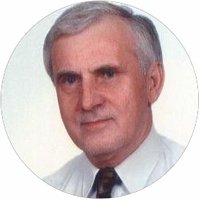ASSOCIATED PARTNERS
ASSOCIATED PARTNERS ARE GROUPS AND ORGANIZATIONS THAT HAVE EXPRESSED AN INTEREST IN BIOCOMPUTATION AND IN COOPERATING WITH THE BIO4COMP PROJECT. THE ASSOCIATED PARTNERS CAN ACTIVELY PARTICIPATE IN WORKSHOPS AND/OR COLLABORATE SCIENTIFICALLY ON KEY RESEARCH TOPICS. BELOW, THE CURRENT ASSOCIATED PARTNERS PRESENT THEMSELVES.
The Center for Microtechnologies at Chemnitz University of Technology is a premier facility for research and education in advanced fabrication technologies for microelectronics, micro-/nanoelectromechanical systems (M/NEMS) and silicon micromachining as well as advanced nanotechnology and systems integration at international and national level. The mission of the Center for Microtechnologies is to bridge the gap from excellent and interdisciplinary basic research towards application-specific and close-to-industry research formats, up to the fabrication of prototypes and early demonstration samples. Currently, the Center for Microtechnologies operates two clean rooms with a total area of 1,000 m2, of which 300 m2 are cleanroom class 10 (ISO 4).
The Center for Microtechnologies is located at the Smart Systems Campus Chemnitz, an innovative high-tech incubator comprising players with expertises in Micro and Nano Technologies as well as in Smart Systems Integration. The Center for Microtechnologies is constituting partner of the brand-new interdisciplinary Research Center for Materials, Architectures and Integration of Nanomembranes (MAIN), a Central Scientific Institution at Chemnitz University of Technology established in 2018. MAIN enables interdisciplinary research at the forefront of low-dimensional materials science between (bio)chemistry, physics and microsystems and semiconductor technology with target applications in flexible and hybrid electronics, optofluidics, plasmonics and metamaterials, and micro energy storage. MAIN is home to 3800m² of highly automated lab areas and clean room facilities and top-notch research instrumentation for nanomaterial synthesis, analytics and integration.
Visit the website of the Center for Microtechnologies at Chemnitz University of Technologies
Prof. Karla Hiller
Deputy Director of the Center for Microtechnologies
Center for Microtechnologies at TU Chemnitz, Germany
Prof. Jerzy J. Langer
Adam Mickiewicz University in Poznan (AMU), Poland
Laboratory for Materials Physicochemistry and Nanotechnology
Prof. Langer is interested in parallel information processing, particularly using molecular or nano/micro networks. What his group would like to do in this field very well fits to the Bio4Comp Project.
Prof. Langer's initial research bases on physical model of neural network, intentionally organized ("learned") gave positive results.
On the other hand, his group has successfully studied protonic p-n junction systems. Combining these concepts and Bio4Comp basic idea (particularly with the use of proton-powered biological motors), there is a possibility to get programmable neural network at the nano/molecular level.
The Biological Computation group at Microsoft Research in Cambridge, expressed a strong interest and support for the Bio4Comp project proposal. The group is keen to follow the progress in this project, participate actively in planned workshops and events, and collaborate scientifically on key research topics – in particular related to the computational methods and tools developed in the project.
More generally, Microsoft is strongly interested in exploring disruptive technologies that will shape computing in years to come. As the research arm of Microsoft, the group is actively following ongoing research and innovation in biotechnology, and will keep an open eye for potential innovations from this project that may be of strategic importance to the company.
Namely, Dr. Yordanov was an invited speaker at the workshop "New Directions in Biocomputation”, September 2017, and gave an overview of modelling and analysing biological systems and biological computation.
Dr. Boyan Yordanov
Microsoft Research Ltd.
Cambridge, UK
Prof. Adam Micolich
University of New South Wales, Australia
School of Physics
"UNSW's and the School of Physics' strong research culture and considerable expertise across the topics of nanoscale devices and protein biophysics make it an ideal partner for the Bio4Comp Consortium. "I feel that collaborative work and personnel exchange between Bio4Comp and our School would be beneficial to both parties, as well as contributing to research cooperation and linkages between the European Union and Australia" writes Warwick Dawson, Director, Research Strategy and Partnerships.
The School hosts the lead node of the Australian Research Council Centre of Excellence for Quantum Computation and Communication Technology and has a long-standing and strong international research effort on the physics of nanoscale electronic devices.
This strength in nanoscale devices is of particular relevance to our proposed collaboration with your Consortium. A/Prof. Adam Micolich has been working on carbon nanotube based sensors for the detection of passing actin filaments in actomyosin molecular motor assays with your team in Lund for several years now, and we understand this work has strong synergies with one of the key objectives of the Bio4Comp research programme.
Studying research data in the context of scholarly communication is the topic of a research project at the Department of Archivistics, Library and Information Science, Oslo Metropolitan University.
The Bio4Comp consortium cooperates in this study how researchers share research data with each other. The background is the unprecedented level of interest that stakeholders presentaly demonstrate in how researchers communicate their results and data. Governments, universities and research funders, have formulated digital data policies that require granted research projects to develop plans where data management issues, like storage and handling, are specified. These policies are thereby changing the conditions for and practices of data sharing. This project asks: how are research data shared between participants within interdisciplinary projects and how are these practises influenced by the data policy?
Website of the Dept. Archivistics, Library and Information Science
Oslo Metropolitan University
Dept. Archivistics, Library and Information Science
ASSOCIATED PARTNERS
One of the declared goals of this project is to generate and structure a larger interdisciplinary community addressing theoretical and technological aspects and identifying future applications of network-based biocomputation.
We are excited that we already have the Associated Partners above, who have documented their interest in collaborating with this project by sending a Letter of Support. We hope to enlarge the number of Associate Partners and invite researchers, both from acadamia and industry, working in related fields to cooperate with us.
INTERESTED?
We heartily invite researchers from academia and industry who are interested in contributing to the field of network based biocomputation. There are many opportunities to join this ambitious research field: You can participate in one of our workshops, submit your ideas to one of our open-innovation Bio4Comp awards, start a scientific collaboration or even become an associated partner. Click the button below to get in touch with us.








